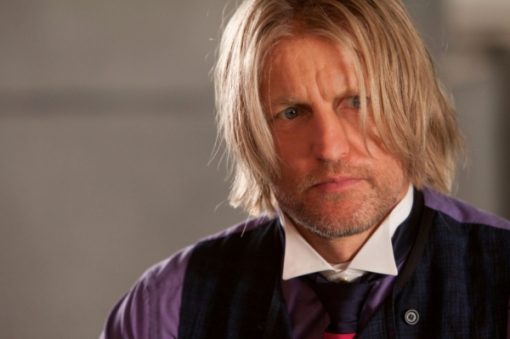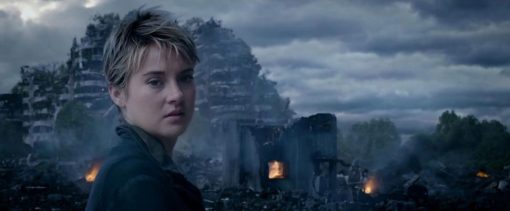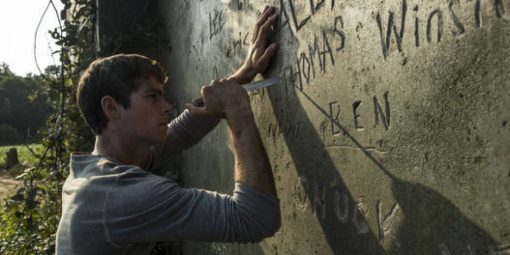I picked up the Maze Runner DVD this week, thinking I might review it for Cultured Vultures. My curiosity had been tweaked last year after seeing the trailer and there had been some semi-decent buzz surrounding the film. It had done well enough to earn a sequel too, so how bad could it really be?
Well, while I wouldn’t call the Maze Runner bad, or even below average, it is underwhelming in a way that has me concerned for young adult movies in general. As a box office phenomenon, “young adult science fiction” is in its early years right now, and it seems to be going through some growing pains.
When Divergent pulled in big audiences last year it seemed proof positive that the Hunger Games was not an anomaly. And while some people, with good reason, have criticised the Veronica Roth adaptation, I’m convinced the Maze Runner is the weaker movie. It exemplifies so many tropes that young adult sci fi has become all too reliant on. They need to stop, or at least more care needs to be put in to how they’re used.
1. The main character is special for some vague, unearned reason…
This is the most common offender. At one point early on in the Maze Runner, our hero Thomas is outright told he’s ‘not like the others’ by the leader of the maze folk. There are some cryptic clues to exactly why he’s different through a handful of dream sequences, but at no point does this begin to feel earned.
Meanwhile, over in the Divergent universe, the heroine Tris is special because she is, well, divergent. In a world where everyone fits neatly into factions, Tris does not. This explanation is a little more meaty than the maze runners, but it’s just as unearned. Tris goes through her trials and tribulations because of her specialness. It is not her struggles that make her special.
I’m going to keep coming back to the Hunger Games in this article, but Katniss’s story arc in the first movie shows how to use this trope properly. At the start of her story Katniss is not particularly special: it’s sisterly protectiveness that compels her to volunteer for the Hunger Games. She becomes special after she’s been through a crucible and come out the other side a stronger character.
2. …but they are also pretty clueless and don’t really know what’s going on.

After being told specifically twice that no one ever survives in the maze at night, there is a moment in the Maze Runner where he does just this to help those who can’t make it out in time. That’s cool. But then, in response to being told he was probably now going to die, Thomas simply says ‘Wha?’
As far as I can tell, having the hero not really know what’s going on is a way of delivering story points to the audience. Why is the world like it is? What happened before we got here? Exactly how much danger are we in? Don’t worry, the hero will ask for us and we will be told.
Divergent, for its sins, gets around this by giving the main character a neat voice-over at the start of the film explaining all the things. It’s a little clunky, but at least we know who’s who and what’s what before we get into the story.
3. Don’t worry though. There are entire scenes where the protagonist is told what’s going on, in neat expositionary dumps

One of the problems with the Maze Runner is that a lot of its first act is taken up by characters explaining to the hero why things are as they are. Now, as I said, this information is needed for us to understand the story.
But isn’t the cardinal rule of storytelling ‘show don’t tell’? If we absolutely have to have an info dump can’t we at least have something else interesting going on at the same time?
This sort of thing is more forgivable in a book, where exposition can be cushioned by an interesting point of view character. But in a movie stopping the story to explain stuff just doesn’t work.
4. The aesthetic is vaguely post-apocalyptic and dystopian

It’s the future, there’s some kind of sinister government run by the kind of adults who teenagers think ruin everything, and everyone is dressed as if the apocalypse happened. None of these are bad ideas except when they’re done poorly.
The best future apocalypses or dystopias in film offer us something interesting and unique, like Mad Max, The Terminator or The Matrix. I’m not a film expert but it feels like a lot of young adult sci-fi opts for a hodge podge of the ideas popularised by these films.
Less grey brown monochrome clothes and buildings please.
5. Wow, that shaky cam is starting to make me queasy. What’s going on in this scene?
This isn’t a criticism of the young adult genre specifically, but there were moments in The Maze Runner where the camera wobbled about so much it started to make my head feel fuzzy. It was usually in action scenes and it wasn’t always clear what was going on.
I’m not sure how harsh to be with my criticism of this, because I know next to nothing about directing and filming a movie. But come on guys, if you’re trying to cover up for bad fight choreography, plan your fight scenes better, if not then why would you ruin a good action beat by shaking the camera around like Michael Bay?
I think shaky cam can work in small doses, but when it takes over entire action scenes it’s like a message to my brain telling me to switch off and think about something else until it’s over. And action scenes really should be doing the exact opposite.
Some of the coverage you find on Cultured Vultures contains affiliate links, which provide us with small commissions based on purchases made from visiting our site. We cover gaming news, movie reviews, wrestling and much more.




